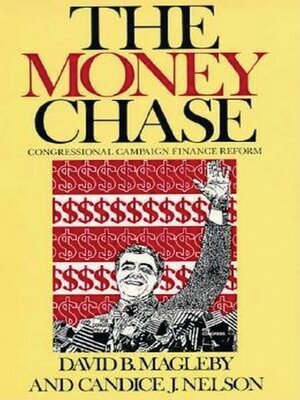
Sign up to save your library
With an OverDrive account, you can save your favorite libraries for at-a-glance information about availability. Find out more about OverDrive accounts.
Find this title in Libby, the library reading app by OverDrive.



Search for a digital library with this title
Title found at these libraries:
| Library Name | Distance |
|---|---|
| Loading... |
The amount of money needed to run a competitive congressional campaign is staggering, with special interests playing a central role in raising these funds. Also of concern is the declining competitiveness of House elections. And while recognition of the need to reform campaign financing is widespread, partisan and House/Senate differences over what these changes should be have complicated legislative efforts.
Almost $450 million was spent in both the 1986 and 1988 congressional campaigns, much of it coming from wealthy contributors and political action committees (PACs). Increasing criticism of the current system will undoubtedly force Congress to keep campaign finance reform on it's legislative agenda.
Using public opinion, election and campaign spending data, extensive interviews, and a knowledge of practical politics, Magleby and Nelson examine the central issues in the campaign financing debate: the cost of congressional campaigns, financial participation by the political parties and PACs, existing and proposed limits on contributions and expenditures, public financing, and the role of the Federal Election Commission. They propose a comprehensive package of reforms that will undoubtedly serve as a guide for future legislation.
Almost $450 million was spent in both the 1986 and 1988 congressional campaigns, much of it coming from wealthy contributors and political action committees (PACs). Increasing criticism of the current system will undoubtedly force Congress to keep campaign finance reform on it's legislative agenda.
Using public opinion, election and campaign spending data, extensive interviews, and a knowledge of practical politics, Magleby and Nelson examine the central issues in the campaign financing debate: the cost of congressional campaigns, financial participation by the political parties and PACs, existing and proposed limits on contributions and expenditures, public financing, and the role of the Federal Election Commission. They propose a comprehensive package of reforms that will undoubtedly serve as a guide for future legislation.







